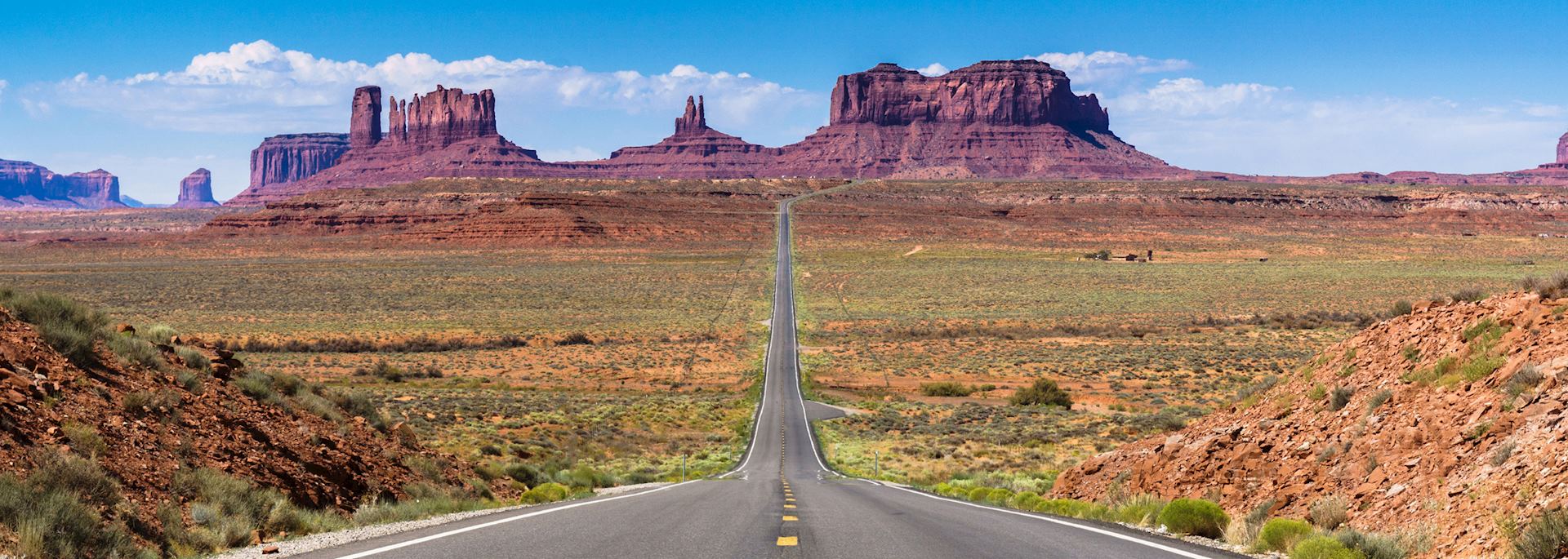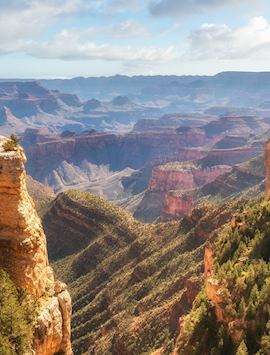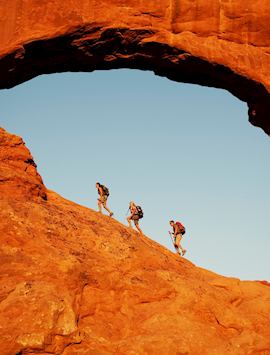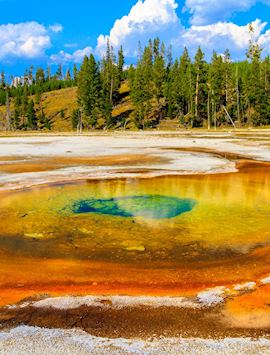By USA specialist Tim
The USA’s national parks are vast and varied. The bright geysers and geothermal activity of Yellowstone and the grassy meadows and jagged pinnacles of Yosemite are recognised the world over but the parks in Utah and Arizona hold an altogether different allure.
The sandstone monoliths, deep red canyons and Wild West scenery of Zion, Monument Valley and Bryce Canyon are a direct contrast, providing a remarkable backdrop to a fly-drive through the southwest.
These national parks are some of the most interesting in the country, which you can easily visit on a road trip that sets off from the bright lights of Las Vegas.
For this guide, I’ve chosen a particular route that I’ve driven, and I talk about the landscapes that I vividly remember. But this is just one option to give a flavour of what a self-drive itinerary in America’s Southwest can offer, and it can easily be adapted.

Las Vegas
To begin this self-drive you’ll fly into Las Vegas, or with more time, you can include Sin City in a longer journey that first travels along the California coast, before heading inland.
The city itself is worth a few nights’ stay, as the hotels alone are some of the most unusual in the country, and can offer great value for money.
There’s also more to this pulsating play town than bright lights, mega hotels and gambling. Outstanding acts and shows such as illusionist David Copperfield and various Cirque du Soleil productions are performed regularly throughout the month, and there are a number of museums and exhibits, such as the , for those seeking something a little different.
There’s also plenty of family entertainment in Las Vegas, whether indulging in chocolate at M&M's World, or thrill seeking at Adventuredome, America’s largest indoor theme park.

Driving to Zion National Park
The first stop for many on this route, Zion National Park is around two hours’ drive from Las Vegas. You’ll travel through dusty, barren desert before the landscape changes and canyons and cliffs appear on the horizon.
The park itself sits in a deep valley and you’ll snake your way along the green and fertile floor with towering red rocks either side, climbing to elevated viewpoints that afford sweeping views across the canyon.
After about an hour into my journey from Vegas to Zion, the sun started setting. The whole area is peppered with rock formations which began to change colour — from sandstone to orange and red — as the sun dipped lower.
Spend a couple of nights here to enjoy some of the best walking trails in the country, either guided or independently. This is one of the most rewarding ways to truly appreciate your surroundings and a particular highlight is a visit to Angel’s Landing from where you can take in panoramic views of the countryside.

Bryce Canyon National Park
Despite being one of the smallest and lesser-known parks in the US (it’s just 12 miles in length) Bryce Canyon certainly makes an impact. Here, just 78 miles away from Zion, hundreds and hundreds of rich red spires, known as hoodoos, protrude out of the ground like soldiers standing to attention, as far as the eye can see.
Despite the canyon in its name, you won’t descend into Bryce as you did Zion. Instead you’ll travel along the rim with a bird’s eye view of the hoodoos. During the summer months the sunlight filters through the gaps in the rocks at sunrise and sunset, changing their hue from yellow to red, then purple. If you’re a keen photographer like me, you’ll enjoy capturing the light as it chases across the rock formations.
The aptly named Sunrise and Sunset Points are the most popular spots to watch this transformation, but there are several other viewing points that can be quieter. If you want to watch in relative solitude I would recommend visiting my favourite spot, Bryce Point. Alternatively visit Sunrise Point in the evening and Sunset Point in the morning to escape the crowds.

Driving through Monument Valley
As you drive down into Monument Valley it feels as though you’re on a film set, or even another planet. This is ‘red rock’ country and has indeed featured in numerous Hollywood blockbusters, from sci-fi films to Westerns.
It takes four hours to drive from Bryce Canyon, but there’s no reason to rush when the scenery is this spectacular. You’ll struggle to miss a pair of monoliths known as the Mittens which pierce the landscape, rising 300 metres from the valley floor. It’s well worth taking the whole day for this route, stop for lunch and take advantage of the many viewpoints en route.
Monument Valley sits on sacred Navajo land and I would recommend spending a day here to explore. In the US you can’t drive on ranger trails in a hire car, so hire a Navajo guide who will take you around by 4x4 or horse, and teach you about his people’s traditional culture and folklore.

The Grand Canyon
It’s possible to explore the Grand Canyon from the North, South, East and West Rims, but on this route you’ll visit the South Rim, the busiest but most accessible part of the canyon. The South Rim is the most spectacular part of this UNESCO World Heritage Site, as you’re able to drive along Desert View Drive, a 25-mile stretch of road that runs along the canyon’s edge, with views over the Colorado River.
All of the USA’s national parks have been designed for self-drive visitors and as such have viewpoints everywhere. There are enough in the Grand Canyon that you can stop at one and be the only person there. To spend a few minutes on the edge of this enormous chasm, looking out across a crevasse so wide and so deep you cannot see the end or bottom, makes you feel very small in comparison. It’s a humbling contrast to the fast-paced cities.

Sedona
Driving through a cactus-filled landscape, you reach the penultimate destination on this self-drive of the southwest. Sedona is a pretty and relaxed town with something of a bohemian atmosphere, the reported geothermal activity and surrounding red rock landscape attracting artists and free spirits alike.
The biggest appeal of the town after driving around the southwest is its comfortable hotels. Accommodation in the national parks can be a little basic and a night or two in a luxurious cabin complete with infinity pool and spa comes as a welcome end to your trip.

Phoenix
The final destination on this route of the southwest, you can fly home from Phoenix, or continue your journey. I’d recommend the affluent suburb of Scottsdale for a night or two given its proximity to the airport and the range of cultural attractions, such as the , which provides an insight into Native American history.
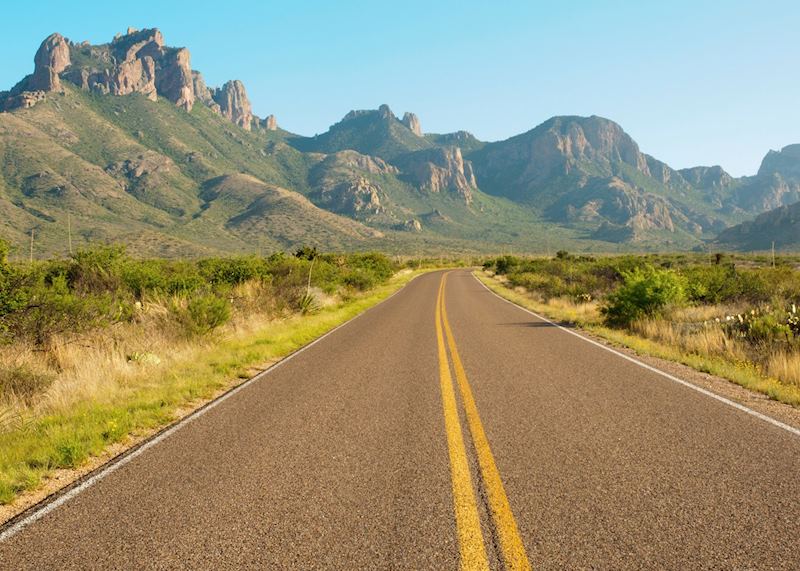
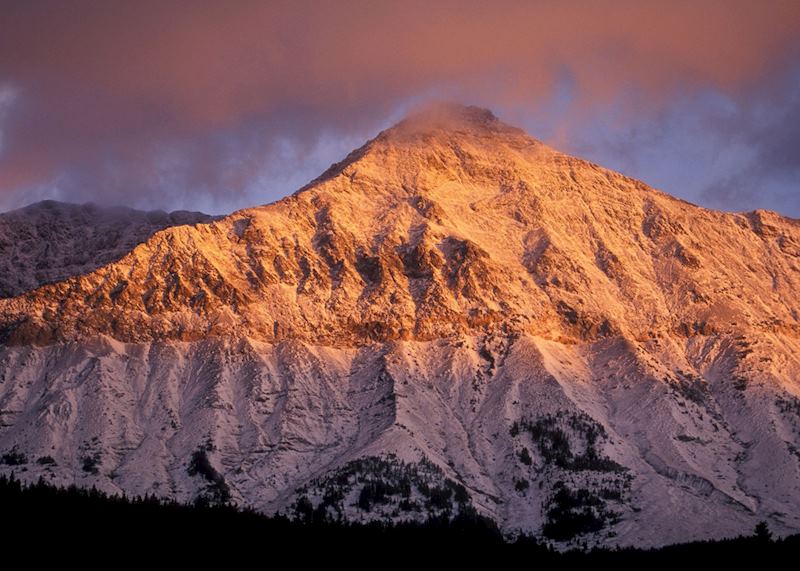
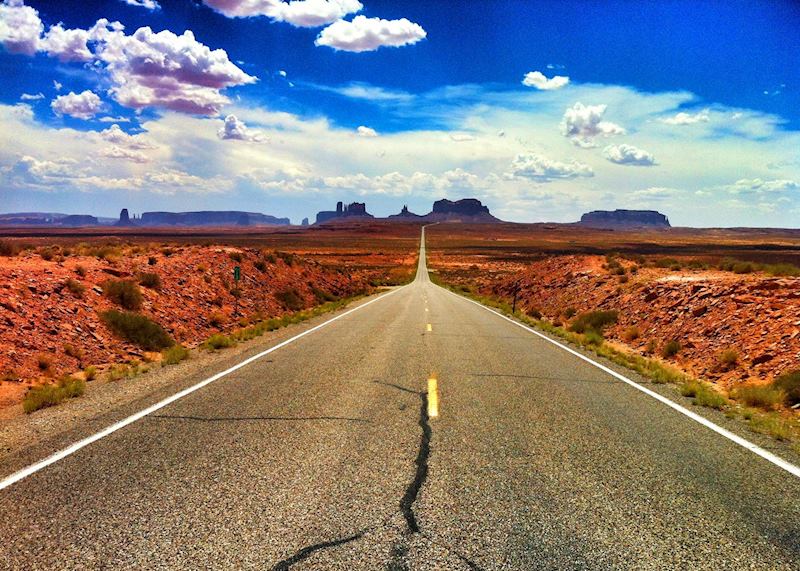
Practicalities
- Many of the roads are so vast and straight in the national parks you’d be forgiven for thinking it’s okay to drive a little faster than you actually should. There are, however, a lot of police cars and speed checks along the roads so do ensure you stick to the speed limit, which can often be 50 or 55 miles an hour.
- As certain times of the year some of the national parks, such as Yosemite, can receive a lot of snow. Between November and April you’re required to carry snow chains in your car as a legal requirement. However, putting snow chains on a hire car will invalidate your insurance, so I’d recommend taking a fly-drive in the USA outside of these months.
Plan your self-drive holiday to the US
Start thinking about your experience. These itineraries are simply suggestions for how you could enjoy some of the same experiences as our specialists. They're just for inspiration, because your trip will be created around your particular tastes.
View All Tours in The USA